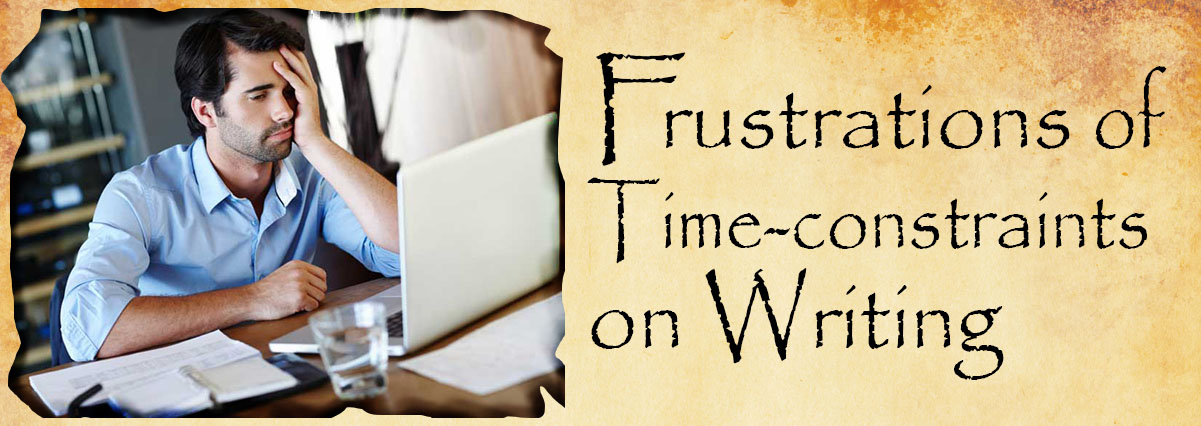Frustration of time-constraints on writing
For many of us the greatest hindrance to getting writing done is the constraints on our time. And on a deeper level we are hindered by the frustration that those constraints cause to our creative process. If the frustration is removed our brains act creatively to produce better writing. Looking back over the past seven years I recognize how this affected the writing process.
The first novel I wrote was while living with my parents. It was just after high school and my mind was free of most of the responsibility I carry today. I had a full-time job, dated infrequently, and later started seeing my future wife and got engaged. During that time I wrote for hours on end, late into the night, in the early morning hours.
Creativity ran on a full tank unhindered (mostly) by the burdens of responsibility.
By comparison, today I provide for my wife and four kids. Having young children takes a lot of creative energy and while I don’t resent that in the least (in fact I love it) I also recognize that I am in a different stage of life. Frankly speaking I cannot get the long hours of stress-free and distraction-free creativity that I used to luxuriate in.
When I updated my cellphone recently I found I could write blog posts and such in the small moments I have free. I am getting it done when I am away from the house because my mind knows I am not going to be called upon by a family member who needs me.
Small moments are proving more fruitful than late nights.
Time-constraints on our writing produce frustration and some writers resort to boatloads of coffee and late nights in order to accomplish the task. I will admit to doing that sometimes myself (albeit with dark chocolate and yogurt instead). But a well-rested writer will be less stressed, and one whose mind is free will be more creative.
One of the keys in continuously improving as a writer is to find those moments free of distraction. Time to meditate, center and clear your mind for the creative task at hand. Writing comes from the heart. A story is grown in the mind. Do everything you can to clear your mind to write from the soul because frustration only ruins productivity.
Q: How do you deal with frustration as it relates to creativity?


